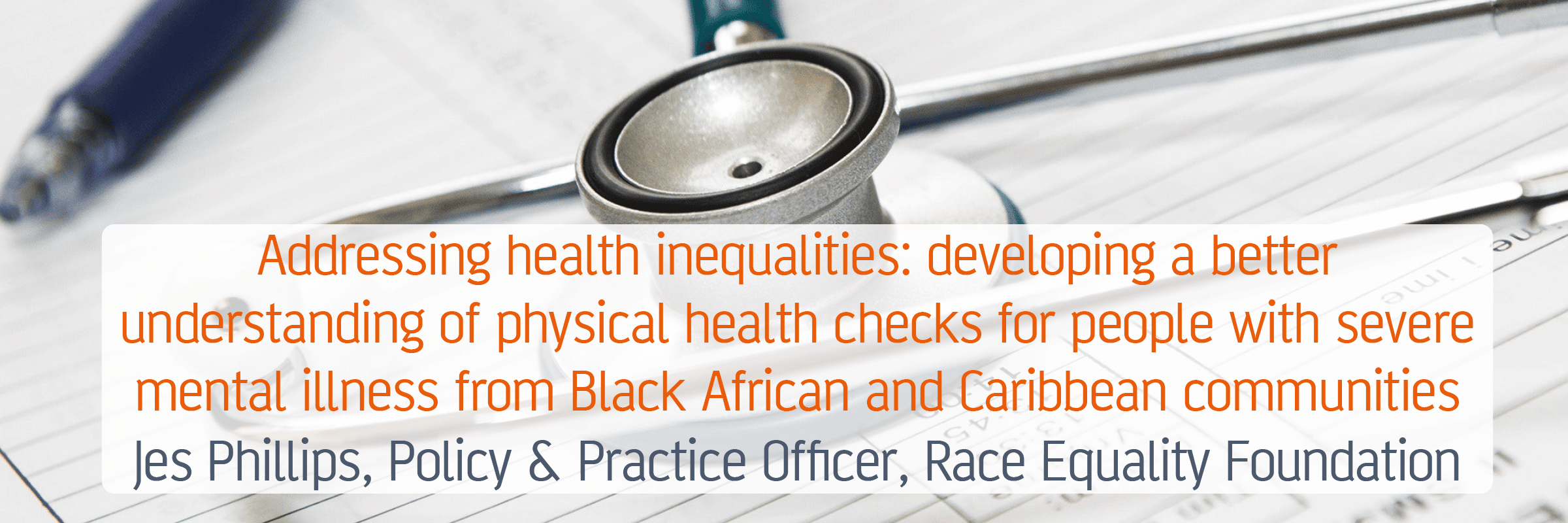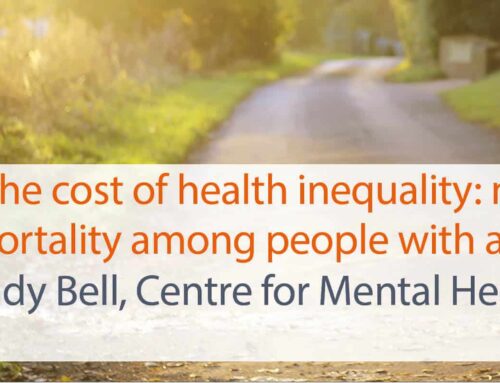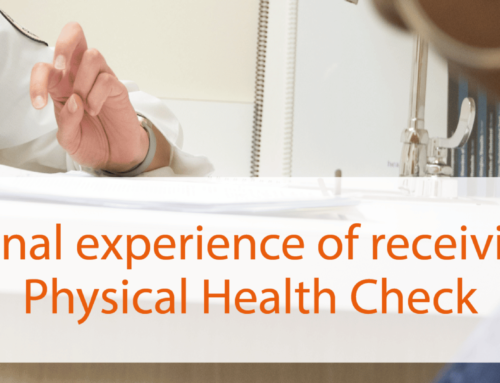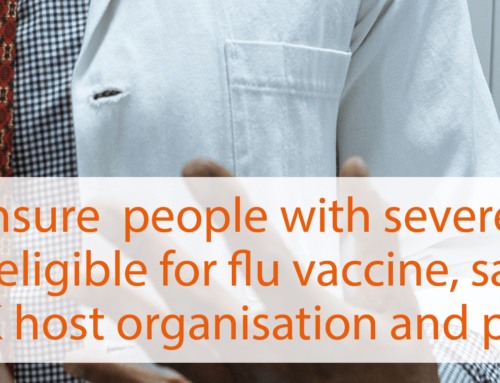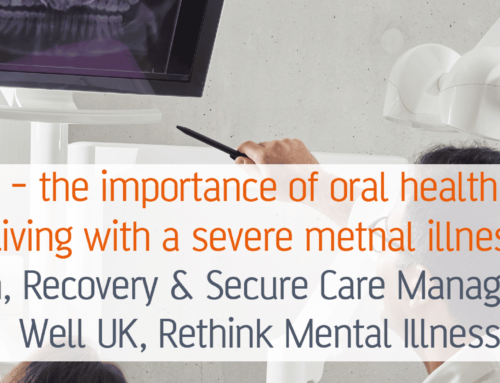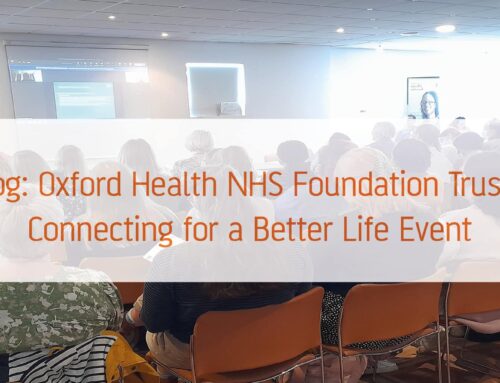Addressing health inequalities: developing a better understanding of physical health checks for people with severe mental illness from Black African and Caribbean communities
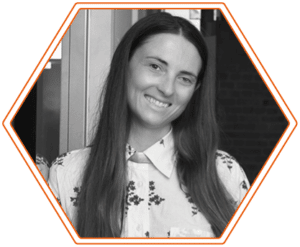
The Race Equality Foundation exists to tackle racial inequality across public services.
Severe mental illness can be debilitating and significantly impact a person’s life. Evidence shows that inequalities across work, housing, unemployment as well as experiences of racism and social exclusion contribute to mental ill-health and increase risk of severe mental illness. Evidence also suggests that these inequalities are often more pronounced among African and Caribbean communities.
Worryingly, people with severe mental illness also experience poorer physical health which can result in a reduced life expectancy of up to 20 years. To address this, the NHS offers annual physical health checks to detect early signs of physical ill-health.
As part of our role in the Health and Wellbeing Alliance (a partnership between voluntary sector representatives and the health and care system) we ran a project seeking to understand whether African and Caribbean people with severe mental illness are aware of and accessing annual physical health checks.
We collaborated with three voluntary organisations who offer services specifically to African and Caribbean people affected by mental illness: African Caribbean Mental Health Services in Manchester, Sandwell African Caribbean Mental Health Foundation in West Bromwich and Sheffield African Caribbean Mental Health Association in Sheffield.
Information was gathered through one-to-one interviews between staff from the organisations and the people they support. We heard from people with severe mental illness (SMI) living in the community and those living in secure units. In addition, we followed this by conducting focus groups with staff members.
We found that in some locations, awareness of physical health checks was low and people were unaware of the link between severe mental illness and poor physical health. In contrast, those living in secure units were mostly aware of physical health checks, why they were important and how they could have one. For those living in the community, a number of barriers were discussed which prevent people from accessing primary care and taking up physical health checks – in particular, booking a GP appointment was said to cause a significant challenge. For this group – who are on the GP’s SMI register but have not been or are no longer under the care of secondary services – there is a lack of regular engagement from health services. This lack of engagement was compounded by substance use, which meant motivation to book and attend a health check was low, and a fear of being sectioned again, which led to hesitancy to contact any health services for any reason.
Although the situation varied between organisations, it seemed statutory services were not always collaborating with voluntary organisations and utilising their specialist knowledge and connections to the community. This is disappointing, as effective collaboration would help address the issues that were raised to us – namely, limited cultural awareness and a lack of appropriate communication.
So how can awareness of physical health checks be raised? Staff made recommendations on this front, including more visual information, community engagement, and upskilling staff at voluntary organisations to carry out some elements of the checks. There were some suggestions from people with severe mental illness too, with ideas including a “ring and ride” service providing accessible transport, avoiding morning appointments and better explanations of what the physical health check appointment will entail, to avoid anxiety.
We have started phase two of this project where, in partnership with voluntary organisations, we will take forward some of these recommendations. Watch this space.

